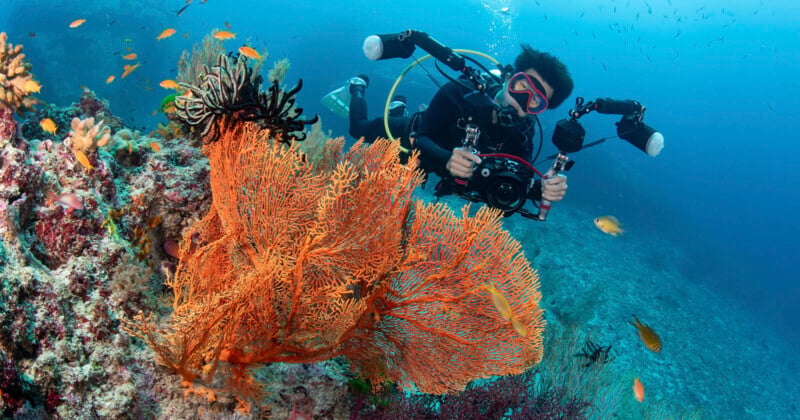Thailand Bans Underwater Cameras on Deep Dives for Most Divers

Thailand has introduced strict new regulations targeting underwater photography. In an effort to protect its increasingly fragile coral reef ecosystems, only experienced divers are now allowed to take underwater photos, a measure prompted by concerns over the damage caused by tourism.
According to a ministerial order published in the Royal Gazette, divers must now hold an Advanced Open Water certification or prove a minimum of 40 logged deep dives to carry cameras underwater. These documents must be presented upon request by authorities. The rules apply to all recreational dives, including training and examination dives.
“It is because those who are not professional diving camera persons tend to destroy corals while taking pictures,” Pinsak Suraswadi, Director-General of the Department of Marine and Coastal Resources, tells Thai PBS World.
Novice divers and instructors are specifically barred from using cameras during training or exams. If photographs are needed, only qualified divers — those certified through organizations such as PADI, SSI, or NAUI — may take them.
Officials highlight that inexperienced divers, especially those preoccupied with camera equipment, tend to struggle with buoyancy control, inadvertently making contact with delicate coral structures. The ministry believes restricting camera use to seasoned divers will reduce such incidents.
The restrictions extend to snorkelling as well. The new rules require snorkellers to swim only in areas where the sea is at least two metres deep above coral, to avoid disturbing the reef. Life vests are now mandatory unless the snorkeller has passed a scuba or freediving course.
Dive instructors, operators, and their assistants are expected to enforce the regulations immediately and intervene when rules are broken. Failure to do so could result in severe penalties—including licence revocation, up to two years in prison, or fines reaching 200,000 baht ($6,000).
The only exceptions to the camera ban apply to officially sanctioned activities such as academic research, environmental education, and marine conservation projects.
While the restrictions may deter some entry-level divers from choosing Thailand as a destination, officials suggest it may also serve as a catalyst for divers to pursue higher certifications sooner. Ultimately, the ministry sees this as a necessary step to ensure long-term, sustainable enjoyment of the country’s marine resources.
Image credits: Header photo licensed via Depositphotos.